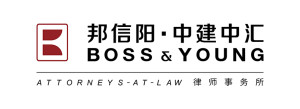The world of dispute resolution can be divided into two broad categories: those that require judicial action, and those that do not require such intervention. The latter is commonly referred to as alternative dispute resolution (ADR). ADR is a general term that encompasses various methods of dispute resolution that do not resort to litigation or arbitration.

Partner
Boss & Young
One understands that numerous jurisdictions, including China, are presently in the midst of exploring varied and innovative means of dispute resolution. Such jurisdictions are utilizing a diverse range of ingenious mechanisms to settle legal disagreements.
Today’s society is increasingly fast-paced and communities worldwide are reaching the zenith of a boom in “litigation culture”. In this context, ADR offers a means of dispute resolution that is uniquely tailored toward and sensitive to the ever-present commercial needs that arise when parties require a solution to business disputes.
The resolution of commercial disputes is also intrinsically commercial activities at the core. The determination of such disputes thus requires business acumen as a primary attribute, should one hope to achieve an effective solution. Such a business backdrop necessitates a resolution of conflict in a “business solutions meets business needs” context.
The parties involved expect that the ADR procedures will be more attuned to their specific negotiation styles, and that ADR will present a relatively convenient mechanism of dispute resolution, offering the possibility of a more palatable result.
This is in contrast to traditional litigation or arbitration, both of which are naturally plagued with, and therefore can be characterized by, several defects inimical to commercial activities.
To name but a few, the presence of strict and inflexible procedures, their time-consuming nature, and the natural adversarial nature of such adjudication (amongst others) are all ill-disposed to reaching a commercial solution to disputes arising in a business context. Against this backdrop, the advantages of ADR are becoming increasingly prominent as it is:
(1) Informal in nature. ADR procedures are extremely flexible. There is also no need for the parties involved to adopt adversarial positions. It is because of this informal nature that parties can efficiently resolve all existing conflict between them, increasing the success rate of this dispute resolution method.
(2) Comprehensive in nature. During the course of ADR proceedings, the parties have the option of integrating and complementing ADR with various dispute resolution methods. ADR procedures and litigation adjudication or arbitration procedures are often integrated. This assists in achieving a high dispute resolution rate.
(3) Proactive in its dispute resolution. The relationship between business partners is frequently of a continuing nature, anticipating a sustained course of dealing. ADR is particularly apt for resolving any disputes arising in such a context, and is especially likely to achieve a successful resolution.
In considering the impact on their business relationships, parties have to reckon with arrangements that have the possibility of resolving their current dispute, as well as keeping an eye on any and all potential future developments. This multi-faceted nature of these business dealings requires a result that may be difficult to achieve via traditional dispute resolution mechanisms such as litigation.
In contrast, reaching a resolution via ADR procedure does not necessitate a win-lose outcome in the context of the existing dispute. Rather, it offers a mechanism whereby both parties may concede in certain areas in order to obtain a benefit in others, and to achieve a mutually beneficial result through this compromise.
In this way, ADR does not result in a single party’s account of dealings or “point-of-view” being achieved, but rather offers a structure where parties “look beyond the past toward the future”.
Accordingly, one can examine the following roles and benefits of including lawyers in the ADR process:
(1) The lawyer participating in the ADR is only required to go through a convenient process that necessitates a client’s mandate, and eschews any complicated procedural requests;
(2) The legal professionalism and training of the lawyer allows him/her to objectively and comprehensively examine the strengths of each party’s case;
(3) The legal profession gives legitimacy to the ADR procedure in terms of legality and rationality. It further offers guidance in the scheme’s operation;
(4) The legal community’s consolidation of resources offers the parties more options and possibilities, giving parties the qualified potential of arriving at an innovative solution to the issue at hand;
(5) The work of a lawyer and the content of his/her job may assist in reconciling any and all possible antagonisms existing between the dispute parties, helping them to resolve the contention in an amicable manner and to mutual benefit.
For these reasons, the author strongly suggests and encourages the active participation of lawyers in ADR.
Xu Zhijie is a partner at Boss & Young
12th-15th Floor, 100 Bund Square, 100 South Zhongshan Road, Huangpu District, Shanghai
www.boss-young.com
Contact details:
Tel: +8621 2316 9090
Fax: +8621 2316 9000
E-Maill: xuzhijie@boss-young.com



























